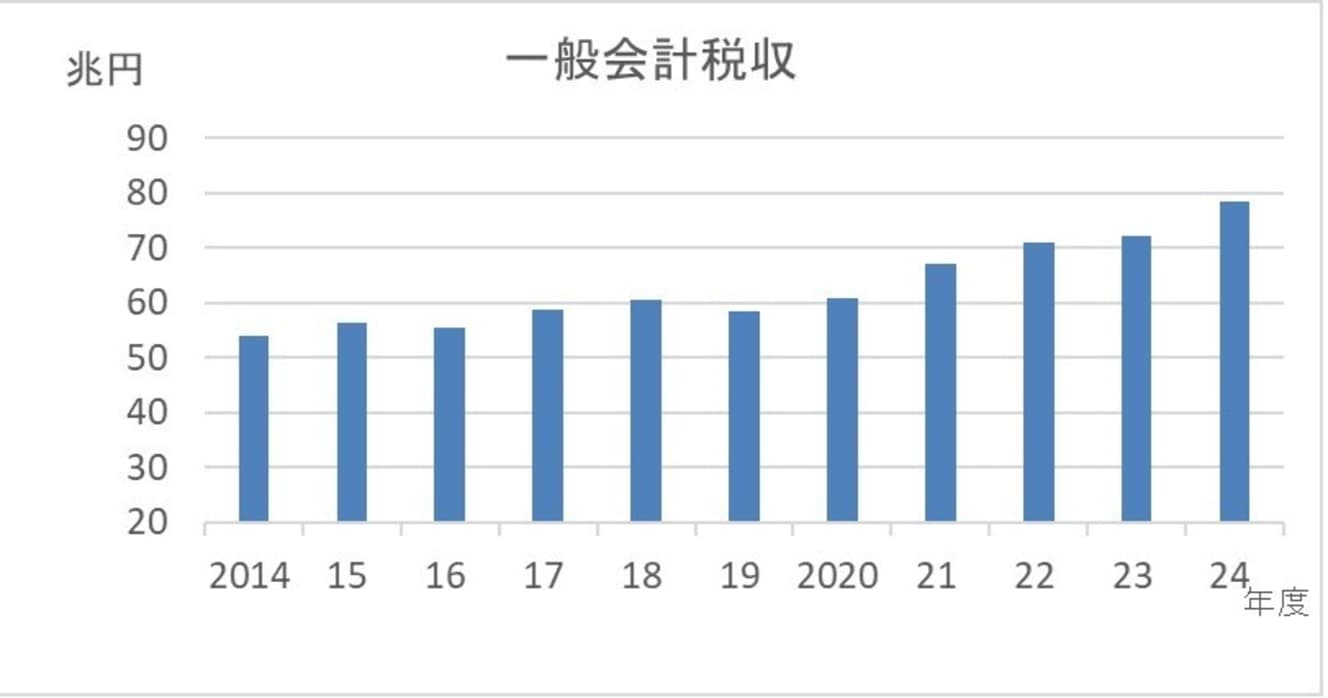Unrealized profit” exceeds 30 trillion yen due to the weak yen…Reason to believe that the “special foreign exchange market” can cover the funding for the “1,030,000 yen barrier” of the National Democratic Party of Japan.

If bracket creep is left unchecked, prices will only rise and the benefits of rising incomes will not be passed on to households, possibly breaking the “virtuous cycle of wages and prices” as the Bank of Japan calls it. In order to prevent this, the DPJ’s argument is that the tax minimum should be raised in order to return the “too much” income tax to households. I would venture to say that the funding for the tax cut already exists in the form of tax revenue.
In order to eliminate bracket creep, “inflation adjustment” is a common-sense policy that flexibly revises the income tax minimum and the applicable category of tax rates in line with inflation. Germany and France have already implemented this policy recently due to the strong inflationary trend worldwide over the past few years, and in the U.S., it is customary to review it annually.
In Japan, inflation adjustment has not been implemented since 1995, but since around ’23, there have been scattered claims, mainly by economists, that it is necessary to respond to bracket creep. In other words, the elimination of the “1.03 million yen barrier” is a perfectly legitimate policy that emerged in the midst of this trend.
The Diet session from February to March is the critical point for “tax reform
This kind of argument has not been covered at all in the wide variety of news programs. Rather than trying to come up with difficult theories, it would be more appealing to viewers if they criticized the government for being irresponsible as a public party in not providing a revenue source! is more appealing to viewers and, unfortunately, more persuasive. As a result, the viewers are led to cite Greece, which is in a completely different economic situation from Japan’s current situation and is in the midst of a financial collapse, and to offer such absurd explanations as, “Garbage collection will be stopped.
This situation cannot be overlooked. The KDP is expected to submit a tax reform bill for Reiwa 2025 at the ordinary session of the Diet, which starts on January 24 this year, and a debate will probably take place in the Diet. The bill to raise the income tax deduction to 1.23 million yen was proposed by the ruling Liberal Democratic Party and New Kōmeitō, but not decided by the Diet. With the support of public opinion, there is room for a tax reform similar to the DPJ’s proposal, since the House of Councillors election will be held in July and the ruling party cannot ignore the trend of public opinion.
However, it will be difficult to win over public opinion with just the right arguments alone, as mentioned above. Representative Tamaki seems to be taking this point into consideration, and in a program on which he appeared, he began to cite “tax revenue upswing,” “non-tax revenue,” and “reduction of expenses” as sources of revenue. However, he has not been flagging in his criticisms, such as that “the tax revenue upswing will not be a permanent source of revenue. This is because the old media cannot easily reach the explanation of inflation adjustment.
Another bad move is the statement made on an Internet program that “the government may issue bonds to finance the budget,” which is also a bad idea. This is also a bad move, as it is likely to generate criticism that the government’s finances will deteriorate further and further, and that it will end up resorting to borrowing money.
Let me emphasize here that issuing JGBs makes sense. In addition to bracket creep, the fiscal situation is improving significantly due to increased corporate tax and consumption tax revenues. The government’s proposed budget for FY 2013 is expected to bring new JGB issuance to around 28.6 trillion yen, the lowest level in 17 years and the first time in four consecutive years that the initial budget has been below 30 trillion yen. On an initial budget basis, it has been below the previous year’s level for four consecutive years. There is plenty of room for JGB issuance (it is a mistaken perception that JGBs are national debt to begin with, but that is not the issue here).